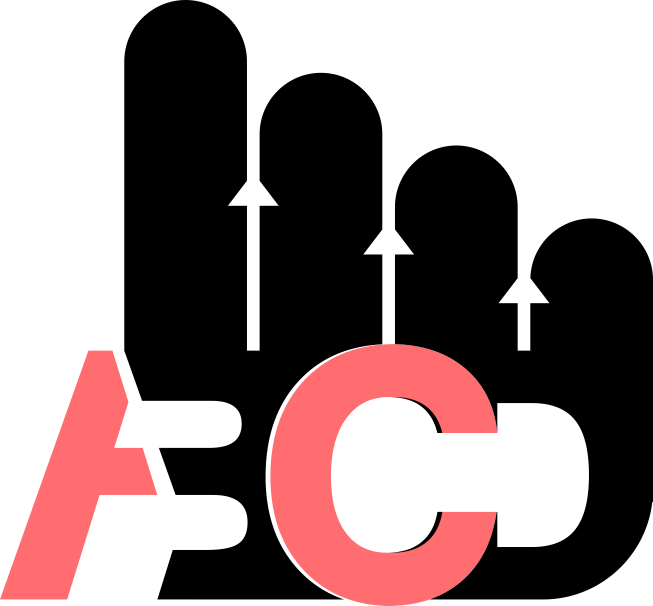Effect of zinc supplementation on growth of preterm infants
DOI:
https://doi.org/10.56056/amj.2022.131Keywords:
Hemoglobin, Length, Occipitofrontal circumference, Weight, ZincAbstract
Background and objectives: Nutritional deficits are almost universal in low-birthweight
babies. This study aimed to show the effect of zinc supplementation on growth and certain
hematological parameters in preterm infants.
Methods: The current case-control study was carried out on 80 healthy preterm infants below 37 weeks of age divided into two groups. The first group was a zinc-supplemented group fed with breast milk exclusively and supplemented with zinc (2 mg/kg/day) since the first day of life. The second group was a non-zinc-supplemented group fed with breast milk exclusively (without zinc supplementation). Both groups were followed up at the age of 4 months for monitoring growth and determining serum zinc and hemoglobin levels.
Results: At the beginning of the study; there was no significant statistical difference between
the zinc supplemented & non zinc supplemented groups in weight (2.4±0.2 kg vs 2.5±0.4kg),
length (45.0±1.6 cm vs 45.2±1.5 cm) and occipitofrontal circumference (31.5±1.2 cm vs
31.5±1.1cm) respectively, but there was a statistically significant difference at 4 months follow up with regard to weight (6.2±0.3 kg vs 6.0±0.2 kg) and length (63.2±2.1 cm vs 61.1±2.0 cm). Also,there was a highly significant increase in serum hemoglobin levels (11.7±1.6 gm/dl vs 10.6±1.5gm/dl) and serum zinc level (101.2±8.1 µg/dl vs 84.1±7.0 µg/dl) in the zinc-supplemented group compared to the non-zinc-supplemented group at 4 months follow up.
Conclusion: Zinc supplementation was found to be effective to enhance the growth as well as
increasing serum zinc and hemoglobin levels in the early months of life of preterm infants.
Downloads
References
Olsen EM. Failure to thrive: still a problem of definition. Clin Pediatr (Phila) 2006; 45:1-6.
Gahagan S. Failure to thrive: a consequence of undernutrition. Pediatr Rev 2006; 27:1-11.
Lapillonne A, Groh-Wargo S, Gonzalez CH, Uauy R. Lipid needs of preterm infants: updated recommendations. J Pediatr 2013; 162: S37-47.
Abrams SA. In utero physiology: role in nutrient delivery and fetal development for calcium, phosphorus, and vitamin D. Am J Clin Nutr 2007; 85: S604-7.
Dilip K Mukherjee, MKC Nair. (ed). Growth and Development: Jaypee Brothers Medical Publishers; 2008; pp.22.
Ehrenkranz RA, Younes N, Lemons JA, et al. Longitudinal growth of hospitalized very low birth weight infants. Pediatrics 1999; 104:280-9.
Classen HG, Gröber U, Löw D, Schmidt J, Stracke H. Zinc deficiency. Symptoms, causes, diagnosis and therapy. Med Monatsschr Pharm 2011; 34(3):87-95.
KM Hambidge, NF Krebs. Zinc in the fetus and neonate. In: Polin R, Fox W, Abman SH, editors. Fetal and Neonatal Physiology. 3rd edn. Philadelphia: Elsevier Science; 2004; 324-46.
Halsted JA, Ronaghy HA, Abadi P, et al. Zinc deficiency in man. The Shiraz experiment. Am J Med 1972; 53:277-84.
Salgueiro MJ, Marcela BS, Zubillaga B, et al. The role of zinc in the growth and development of children. Nutrition 2002; 18:510–9.
Walravens PA, Hambidge KM, Koepfer DM. Zinc supplementation in infants with a nutritional pattern of failure to thrive: a double-blind, controlled study. Pediatrics 1989; 83:532-8.
Ninh NX, Thissen JP, Collette L, Gerard G, Khoi HH, Ketelslegers JM. Zinc supplementation increases growth and circulating insulin-like growth factor I (IGF-I) in growthretarded Vietnamese children. Am J Clin Nutr 1996; 63:514-9.
Nakamura T, Nishiyama S, Futagoishi-Suginohara Y, Matsuda I, Higashi A. Mild to moderate zinc deficiency in short children: effect of zinc supplementation on linear growth velocity. J Pediatr 1993; 123:65-9.
Penny ME, Marin RM, Duran A, et al. Randomized controlled trial of the effect of daily supplementation with zinc or multiple micronutrients on the morbidity, growth and micronutrient status of young Peruvian children. Am J Clin Nutr 2004; 79: 457-65.
Harding JE, McCowan LM. Perinatal predictors of growth patterns to 18 months in children born small for gestational age. Early Hum Dev 2003; 74:13-26.
Gale CR, O’Callaghan FJ, Godfrey KM, Law CM, Martyn CN. Critical periods of brain growth and cognitive function in children. Brain 2004; 127:321-9.
Eriksson J. Commentary: early ’catch-up’ growth is good for later health. Int J Epidemiol 2001; 30:1330-1.
Victora CG, Barros FC, Horta BL, Martorell R. Short-term benefits of catch-up growth for small-for-gestational-age infants. Int J Epidemiol 2001; 30:1325-30.
Georgieff MK. Nutrition and the developing brain: nutrient priorities and measurement. Am J Clin Nutr 2007; 85: S614-20.
Richards M, Hardy R, Kuh D, Wadsworth ME. Birth weight and cognitive function in the British 1946 birth cohort: longitudinal population based study. BMJ 2001; 322:199-203.
Strauss RS. Adult functional outcome of those born small for gestational age: twenty-six-year follow-up of the 1970 British Birth Cohort. JAMA 2000; 283:625-32.
Thureen PJ, Hay WW. Early aggressive nutrition in preterm infants. Semin Neonatol 2001; 6:403-15.
Aggett P, Agostoni C, Axelsson I, et al. Feeding preterm infants after hospital discharge: a commentary by the ESPGHAN committee on nutrition. J Pediatr Gastroenterol Nutr 2006; 42:596-603.
Islam MN, Chowdhury MA, Siddika M, et al. Effect of oral zinc supplementation on the growth of preterm infants. Indian Pediatr 2010; 47:845–9.
El Sadek AE, El Faiky OA, Behiry EG, El said WN. The effect of zinc supplementation on growth and development in preterm neonates. Int J Adv Res 2016; 4:2713-20.
Sonawane R, Patil S, Gulati L, Sonawane S. To Study the Role of Zinc Supplementation on Growth of Low Birth Weight Infants. MVP J Med Sci 2014; 1(1):25-9.
Al-bahadily A, Al-Omrani A, Abdul-zahraa A. The effect of Zinc on the growth of preterm baby in Baghdad, Iraq. Int J Pediatr Res 2016; 3(3):143-7.
Taneja S, Bhandari N, Rongsen-Chandola T, Mahalanabis D, Fontaine O, Bhan MK. Effect of zinc supplementation on morbidity and growth in hospital born, low-birth-weight infants. Am J Clin Nutr. 2009; 90(2):385-91.
Díaz-Gómez NM, Doménech E, Barroso F, Castells S, Cortabarria C, Jiménez A. The effect of zinc supplementation on linear growth, body composition, and growth factors in preterm infants. Pediatrics. 2003; 111(1):1002-9.
Bueno O, Bueno G, Moreno LA, Nuviala RJ, Pérez-González JM, Bueno YM. Zinc supplementation in infants with asymmetric intra uterine growth retardation; effect on growth, nutritional status and leptin secretion. Nutr Hosp, 2008; 23:212-9.
Friel JK, Andrews WL, Matthew JD. Zinc supplementation in very low birth weight infants. J Pediatr Gastroenterol Nutr, 1993; 17:97-04.
Hyun-Ju S, Young-Eun C, Taewan K, et al. Zn stimulation for ALP and collagen in osteoblasts. Nutr Res Pract 2010; 4:356-61.
Downloads
Published
Issue
Section
License
Copyright (c) 2022 Nada Tahseen Hassan, Dlair Abdulkhaleq Chalabi

This work is licensed under a Creative Commons Attribution-NonCommercial-ShareAlike 4.0 International License.
The copyright on any article published in AMJ (The Scientific Journal of Kurdistan Higher Council of Medical Specialties )is retained by the author(s) in agreement with the Creative Commons Attribution Non-Commercial ShareAlike License (CC BY-NC-SA 4.0)














